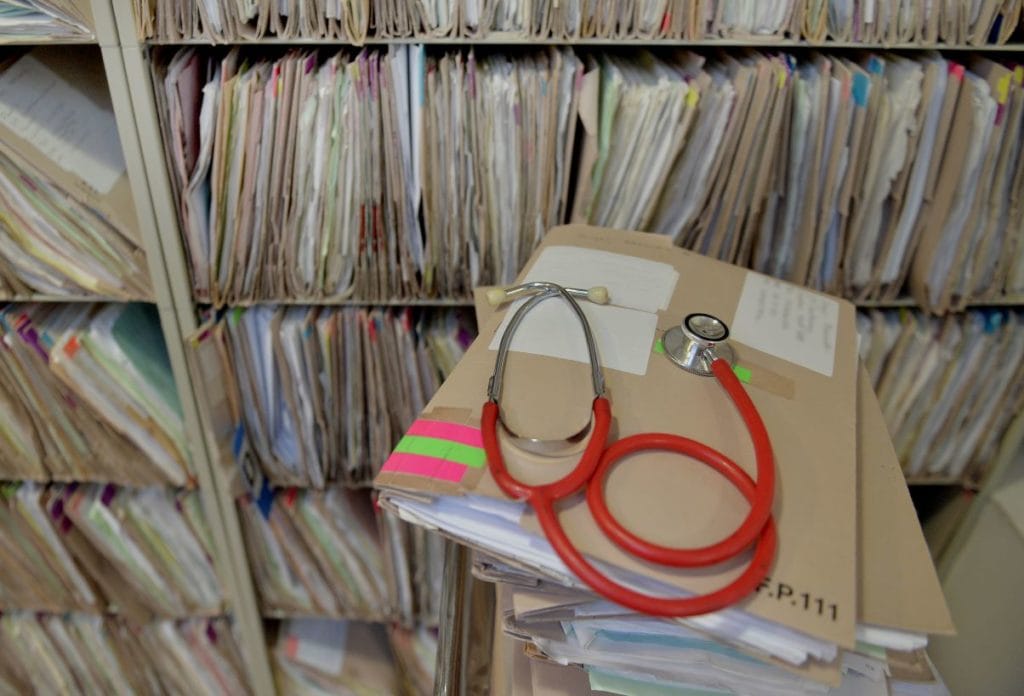
Fewer than six in 10 GP appointments in north Cumbria were held face-to-face after major steps to ease coronavirus restrictions went ahead, figures reveal.
Charity The Patients Association has called for in-person appointments to be the default option, after it found patients nationally had struggled to access primary care in “ways that met their needs” throughout the coronavirus pandemic.
Data from NHS England shows 176,000 GP appointments were carried out in June within the NHS North Cumbria CCG area, 58 per cent of which involved a face-to-face meeting.
That was up from 57 per cent in May, but a significant drop from 79 per cent in June 2019.
NHS England issued guidance to GP practices in May urging them to offer more face-to-face appointments.
But across England, just 56 per cent of consultations were held in person in June – a steep drop from the levels seen in June 2019, when 81 per cent of appointments were face-to-face.
However, it was an improvement on the 47 per cent recorded in June 2020.
The NHS cautioned a small number of appointments held via video call may have been logged as face-to-face appointments by GPs.
Rachel Power, chief executive of The Patients Association, said the charity welcomed the move to require practices to offer more in-person appointments to patients who want them, but investment was needed to ensure accessibility of primary care in the event of future pandemics.
She said: “Phone appointments, which is the other way most patients consult with their GPs, have become more common, and some patients like and will prefer them in future.
“But the pandemic shows the consequences of not investing adequately in the NHS.”
The Royal College of GPs said GPs have worked hard to ensure the same level of care via remote consultations during the coronavirus crisis, but warned that general practice should not become a remote service post-pandemic.
Dr Gary Howsam, vice chairman, said: “GP practices, like other healthcare environments, are high risk for disease transmission and are at the centre of delivering care to vulnerable patients, so it is still vital to maintain infection control.
“Face-to-face consulting is a core part of general practice, and ideally, post-pandemic, we want decisions about consultation methods to be a joint one made between patients and practice teams.”
Separate figures from a survey carried out by the British Medical Association revealed that more than a third of GPs nationally have faced “recent abuse” from patients, with nearly two-thirds of those receiving abuse saying they believed the perpetrator was dissatisfied with the service, including access.
“It is entirely unacceptable for anybody working in general practice to be at the receiving end of any sort of abuse,” Dr Howsam added.
An NHS spokesman said GPs had carried out 275 million appointments during the pandemic, half of which took place in person and on the same or next day.
They added: “GPs and other practice staff such as nurses, physiotherapists and paramedics, will continue to offer patients the choice of face-to-face and remote appointments and in June almost 27 million appointments were delivered – in line with pre-pandemic levels.”
The Department for Health and Social Care said the Government was grateful for the “tireless” efforts of GPs and their teams.
A spokesman said: “The Government has invested £270 million to expand GP capacity so they can cope with the increased demands and recovery pressures as a result of Covid-19, and this comes on top of the £1.5 billion for extra staff committed for general practices until 2023-24.”








